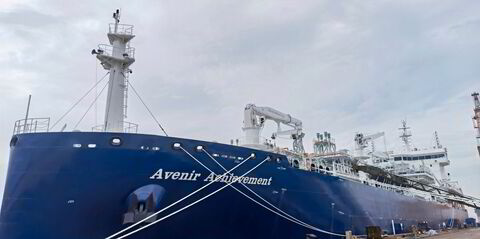Inspectors from the International Transport Workers’ Federation (ITF) have recovered a staggering $118.5m in wages owed to seafarers between 2020 and 2022.
More than $36m was paid back to seafarers in 2022 alone.
Inspectors operate out of 111 ports in 56 countries.
They recorded 2,199 cases of breach of contract last year. Non-payment of wages was the most common reason.
David Heindel, the seafarers’ section chair at the ITF, said: “While we are proud that our inspectors have been successful in recovering almost $120m for seafarers in the last three years, it’s unfortunate that we need to address wage underpayments at all.
“We would prefer to see all seafarers paid in full, and paid on time in the first place.”
He said some shipowners might miss a pay date “here or there”, but other crew members can go months without receiving their salaries.
“ITF inspectors, supported by our seafarer and docker union affiliates, are here to help crew stand up for their rights wherever they find themselves in need of support,” Heindel said.
In 2022, ITF inspectors conducted 8,667 ship checks worldwide. Of these, 1,878 were made in response to seafarers’ calls, emails or messages for help.
Paddy Crumlin, president and dockers’ section committee chair at the ITF, said: “Pandemic-related restrictions had blocked most of our inspectors from boarding vessels in the way they had done pre-pandemic.
The industry’s underbelly
“We are now seeing a strong return to active and regular inspections of flags of convenience vessels, and still the same level of exploitation. It’s another stark reminder of the underbelly of our industry, and also that more ITF inspections taking place is good news for seafarers and their rights.”
On Monday, a 6% wage increase spread over two years and covering 250,000 seafarers was settled under shipping’s largest collective bargaining agreement.
Under the International Bargaining Forum, a 4% increase will be paid in 2024 and the remaining 2% in 2025.
In a statement, the ITF said it had struck a four-year deal between 2024 and 2027, with wages and costs for the 2026 and 2027 period to be discussed in 2025.




